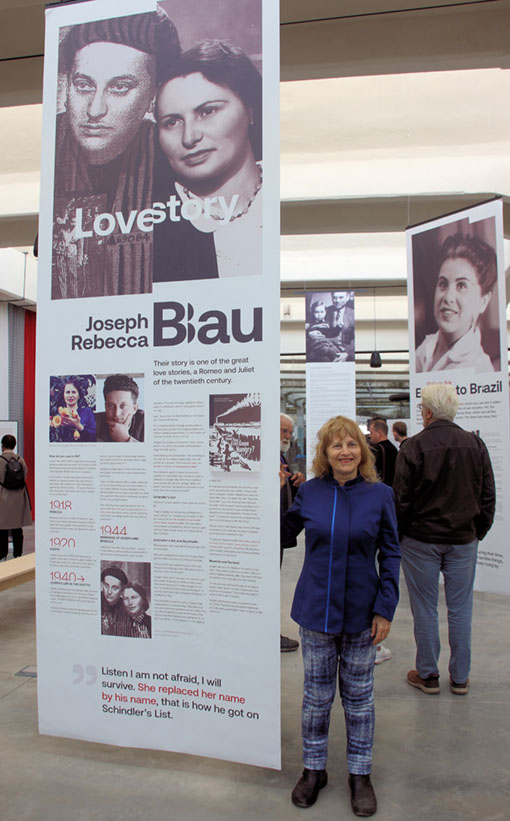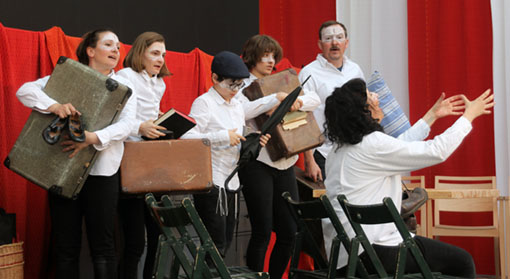The Friends of Czech Heritage: keeping you informed about our activities
You can click on the envelope icon on the right beneath this text to subscribe to our activities listing.
For events and news from other organisations please click here, where we feature a broad range of Czech-related items on Facebook, regularly updated.
MUSEUM OPENING, 10.05.25: The Former Low-Beer Textile Factory in Brněnec
 The restoration and repurposing of the textile factory previously owned by the Low-Beer family and now in the care of a trust headed by Daniel Low-Beer, a descendent of the original owners. The factory has become the Museum of Survivors, a centre for study, reconciliation and creativity, which opened on 10th May 2025. The Friends supported the project with a number of very successful working parties.
The restoration and repurposing of the textile factory previously owned by the Low-Beer family and now in the care of a trust headed by Daniel Low-Beer, a descendent of the original owners. The factory has become the Museum of Survivors, a centre for study, reconciliation and creativity, which opened on 10th May 2025. The Friends supported the project with a number of very successful working parties.
 Our Chairman Peter Jamieson and committee-member David Chick met Eva Lustigová, daughter of the author Arnošt Lustig. Also present was Hadasa Bau, daughter of Josef and Rebecca Bau; her parents met and married while in the ghetto.
Our Chairman Peter Jamieson and committee-member David Chick met Eva Lustigová, daughter of the author Arnošt Lustig. Also present was Hadasa Bau, daughter of Josef and Rebecca Bau; her parents met and married while in the ghetto.
Daniel Low-Beer formally opened the museum. Thomas Keneally, author of Schindler’s Ark, was not well enough to travel from Australia and joined by Zoom. There followed a fashion show of Low Beer textiles.
The opening event featured dramatic performances, this included The Lemon by Arnošt Lustig. There followed a promenade play, Our Factory, written and directed by Kristýna Pavlasová and performed by the local theatre company. Characters included the owners of the factory in the 1930s, Alice and Walter Low-Beer. In one scene Walter Low-Beer defends the bridge on his property, which after the Sudeten Crisis had become the border between the German Reich and Czech territory. The characters Oskar and Emilie Schindler were also portrayed.
 In a later scene actors and audience received an identity card and had to give their name from the card when passing the guards. Railway transport was evoked, again with members of the audience as prisoners, along with the actors. The guards shouted at some of the actors, giving a sense of how threatening an experience this would have been in reality. The play ended with liberation from the camp.
In a later scene actors and audience received an identity card and had to give their name from the card when passing the guards. Railway transport was evoked, again with members of the audience as prisoners, along with the actors. The guards shouted at some of the actors, giving a sense of how threatening an experience this would have been in reality. The play ended with liberation from the camp.
Images from top: the floor of the centre as a creative space. Hadasa Bau stands next to a panel about her parents; a scene from the play Our Factory. Images © D. Chick
Image © D. Chick

